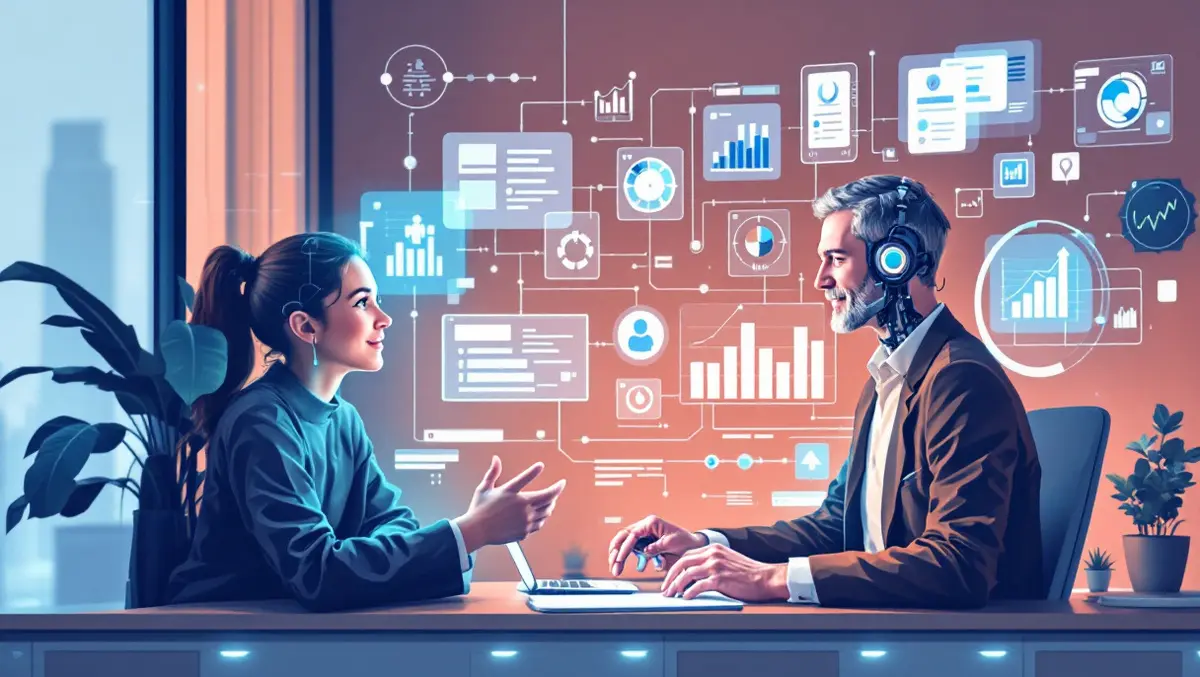
AI-driven coaching tools: debunking myths & benefits
AI-driven coaching tools are gaining traction in workplaces, and CoachHub is addressing some prevalent myths about their effectiveness and potential drawbacks.
The global digital coaching provider, CoachHub, has released insights detailing how AI-assisted coaching integrates evidence-based psychological frameworks to enhance traditional coaching rather than replace it.
AI coaching is characterised by its reliance on established psychological and coaching methodologies, designed to cultivate skills such as critical thinking, problem-solving, and metacognition among employees. According to CoachHub, this makes leadership development more accessible to a wider range of employees, while maintaining human oversight to ensure ethical and unbiased AI deployment.
Hilary Aylesworth, Chief Product and Technology Officer, commented on the misconception that AI would lead to diminished critical thinking: "Coaches - whether they're AI or human - guide people to their 'aha' moment. They empower coachees to own their development and remain committed to their growth. An AI coach shouldn't allow coachees to become dependent on it for answers; if anything, it should put the responsibility back on coachees to make decisions, think critically, and share ideas on how to solve problems. The AI can give feedback, expand on a coachee's suggestions, and offer support, but it shouldn't provide all the answers. That way, employees will refine their existing skills, and develop new ones."
The concern that AI coaching might replace human coaches was also addressed. AI is said to augment human coaching efforts by allowing personal interactions to focus on cases that require specialised human insights. Laurel McKenzie, Principal Behavioural Scientist, stated, "Human coaches are in finite supply, and associated processes have traditionally not been easily scalable. So an AI coach that draws on established coaching methodologies and frameworks can act as an introductory tool to coaching. AI coaches can enable upskilling and professional growth through role-playing, goal setting, and day-to-day guidance. When someone faces more complex and nuanced challenges, human coaches will always be there to deliver that support. The goal is to offer every employee - regardless of their seniority - a baseline, and an AI coach is exactly that. It has the potential to democratise coaching and spur on skill development on a global level."
Another common apprehension relates to AI exacerbating bias. CoachHub asserts that with adequate human oversight and the integration of human skills, such as emotional intelligence, bias in AI coaching can be effectively managed. "Coaching is the gateway to a more inclusive and welcoming organisation, so it's critical that AI coaches help cultivate this," highlighted Aylesworth. "Keeping humans in the driver's seat will ensure AI coaching remains ethical and transparent. For instance, organisations can develop policies and guidelines to ensure the coaching tools are used properly, and outline procedures if an AI coach does show bias. It's also important that solution providers train their AI coaches with the right data to help recognise and mitigate biased responses. With this holistic approach, AI coaching can be deployed safely."
The notion that AI-led coaching lacks substantial impact is challenged by CoachHub, which underscores that AI democratises coaching, enhancing workforce development at all levels. Minimal improvements can accumulate over time to engender significant growth.
McKenzie explained, "AI coaching excels in low-complexity situations, like helping someone give feedback for the first time, or helping prepare for an important presentation. If the AI coach improves performance, productivity, or skill development by even just 1-3%, that's a tangible benefit. If it enhances employee retention and engagement on a large scale, it can create significant benefits for organisations."
Aylesworth added, "AI is touching and evolving every industry; the coaching community is no different. It's an exciting time, because AI opens up new possibilities and opportunities for transformation in both how coaching is delivered, and the impact it has on employees and business outcomes. For coaches, AI can free up their time without neglecting clients. For coachees, they have access to critical resources to help them reach and surpass their goals. And for organisations, they have a solution that is cost-effective and holistically beneficial. We're only just scratching the surface of what AI coaches are capable of."


